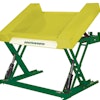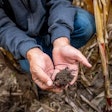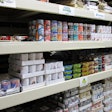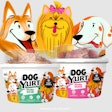The American Feed Industry Association recently hosted its Import/Export Seminar, in Arlington, Virginia, USA, which provides opportunity for discussion and education on trade requirements for feed, petfood and ingredients.
Key speaker Suzanne Heinen, administrator of the US Department of Agriculture's Foreign Agricultural Service, delivered an overview of the Foreign Agricultural Service, whose strategy, according to Heinen, is comprised of four criteria: trade policy, market development and export assistance, market intelligence and analysis, and international development. Heinen said a constraint facing the agency is selecting what to include in export reports, as types of petfood, feed and feed ingredients vary from country to country; generally, she said prepared animal feeds, petfood and petfood/prepared foods as reporting variables are included.
Kim Young, deputy director, Division of Compliance, FDA's Center for Veterinary Medicine, presented on his agency’s role in importing and exporting products. For exports, a product must meet four requirements: has to meet the foreign purchaser’s specifications; cannot be in conflict with the laws of the country where being exported; must be labeled that it is intended for export; and cannot have been offered for sale in domestic commerce. Young said the Center for Veterinary Medicine must review applications, verifiy licenses and/or registrations, and may inspect a product prior to issuing an export certificate.
Panels on exporting, trade agreements, and the food and feed regulatory systems in other countries were held on the second day of the conference. In a panel with presentations on China, Becky Rasdall, international trade specialist, Foreign Agricultural Service's Office of Agreements and Scientific Affairs, said US feed and feed ingredient exports to China grew at a rate of 478 percent over the 2009 rate to reach US$1.6 billion in 2011. Additionally, Fred Gale, Economic Research Service, USDA, explained how the rise of living standards and growth caused China’s demand for meat, eggs and animal feed to increase, while Rosanne Freese, senior international trade specialist, USDA, explained the current reform of China’s food safety law.
The next Import/Export Seminar will be held in late 2014.

















